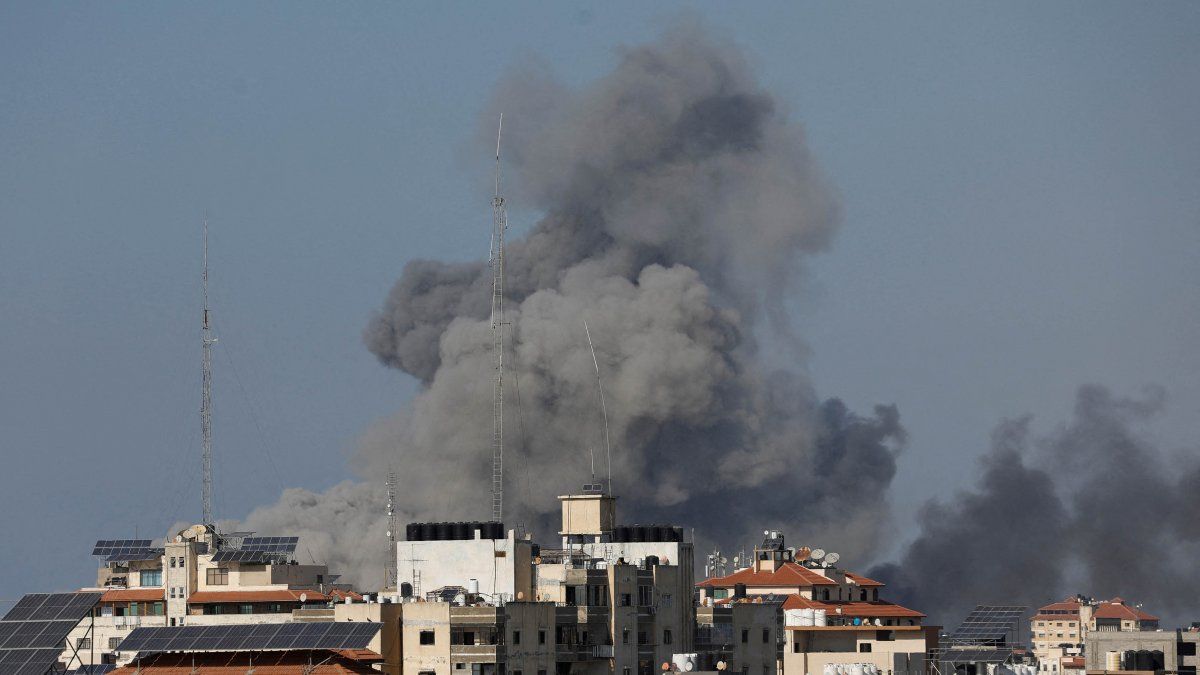In addition to causing immense human suffering, the conflict will affect economic activity in both Gaza and Israel.says a Focus Economics report that measures the impact that the war that broke out in the Middle East as a result of the Hamas attack will have on the activity of both countries and the rest of the world.
The report notes that, in Gazathe conflict has caused significant damage to infrastructure due to Israeli airstrikes, as well as power outages and shortages of basic necessities. While, In Israel, the government has called up more than 300,000 reservists, limiting the supply of labor. Likewise, they warn that the conflict is likely to also affect investment and tourism in the country.
But, on the other hand, they maintain that there are risks of contagion. And “the conflict could extend beyond Gaza and Israel, causing more human tragedies and affecting the economies not only of the countries in the region, but also of those further away.”
The risk of fighting with Hezbollah
“Fighting Hezbollah, a fundamentalist militant group based in southern Lebanon that fought with Israel for decades until the early 2000s, is a real possibility. This would likely devastate Lebanon’s already weak economy,” according to Focus Economics. And they add that there is also the possibility of a direct war with Iran, a major oil producer and rival of Israel.
It happens that that country has been, for years, the main benefactor of both Hamas and Hezbollah, and although at the moment a direct war between Iran and Israel does not seem likely, If it occurred it would have a potentially large impact on the global economy. “A conflict involving Iran could lead other countries to become involved (such as the United States) and significantly affect the supply of oil and therefore increase its price,” the report sanctions.
However, they hope that if it remains contained, the conflict’s impact on the global economy will be largely limited. to the increase in oil priceswhich are trading above the level they were at at the start of the conflict, and expect that this is likely to remain the case in the short term as investors demand higher risk premiums.
Diplomatic relations between Israel and Arab countries
Besides, Within the region, the conflict will damage diplomatic relations between Israel and Arab countrieswhich have improved significantly in recent years, particularly since the US-brokered Abraham Accords of 2020, in which Bahrain and the United Arab Emirates agreed to recognize Israel’s sovereignty.
Further rapprochement between Israel and Arab countries (particularly Saudi Arabia) now appears unlikely, at least in the short term, which will reduce stability in the region and likely affect future investments.
“The duration and scale of the war will depend on whether a significant second front opens in Lebanon or the West Bank (not our main theater). Israel is now likely to launch a ground offensive, with the challenge of how to manage a prolonged presence in Gaza. “A prolonged campaign (and therefore a broader emergency government) is likely,” he told an analyst at The Economist Intelligence Unit, the independent business unit of The Economist.
Source: Ambito




